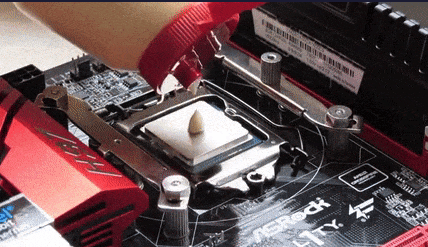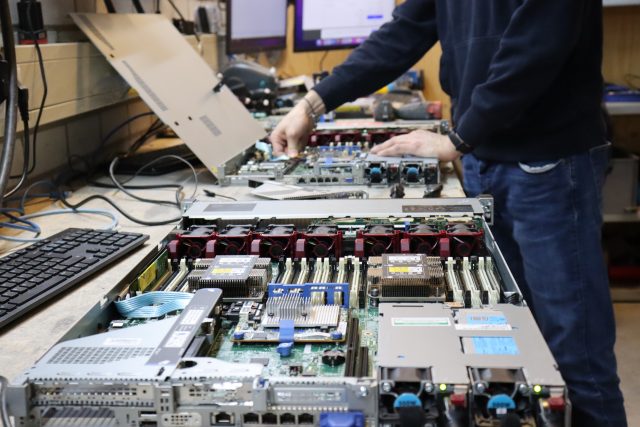In the last blog post, we covered how reusing servers reduces the demand for production and, subsequently, lowers IT’s environmental impact. Today, we zoom into a topic of equal environmental impact, whose importance extends to strategic security: mineral scarcity. Hold on to your server rack, it will get scary - but only for a little bit.
Runouts
Let’s start with the uncomfortable truth: key minerals for tech industries are running out. The European Commission marked 45 raw materials as critical, based on how vital they are for modern technology, including renewable energy, and how risky their supply is becoming.
Largest suppliers of CRM for the EU. Source: European Commission
Each ore is crucial for the functioning of tools we consider essential today, from servers to wind turbines. Most of the 45 critical raw minerals are present in data centre equipment. For example, platinum, cobalt, neodymium, or palladium.
Some of those could be gone as soon as the next century. That leads to serious issues.
Duh.
Shortages of raw materials could put the production of key IT equipment to a standstill. Even before that, the scarcity could lead to prices skyrocketing. At least for new products.
You may recall how bad mining can get for the environment. The shortages could make it even worse: to prevent a supply disaster, mining companies are looking for new mineral sources. Those, however, get more and more energy-intensive to reach and are environmentally destructive.
Thankfully, there’s a light at the end of the tunnel: reusing server hardware (surprise, surprise!).
Dumped billions
Currently, the piles of e-waste - growing three times faster than the world’s population. They pollute their surroundings and the food chains of people living nearby. Additionally, there is billions’ worth of gold, platinum, and other precious metals lying around in e-waste dumps. The UN estimates that as much as $10bln worth of metals are dumped every year.
At iuppiter, we are on a crusade against inefficiency. It literally hurts us to see so many perfectly usable, valuable materials just dumped to disintegrate in the rain. Therefore, we’re more than happy to contribute a solution.
Apart from limiting production, buying refurbished hardware also reduces the number of items that get thrown away. This reduction lowers the server’s environmental footprint by an additional 5% and, perhaps even more importantly, eases the strain on critical raw minerals.
Our refurbishment process brings servers back to their full functionality, allowing them to be reused. The reuse means that we put precious materials back into circulation. It’s especially important that reusing puts all of the ores back to use. With recycling, that’s usually not possible, because some of the most scarce and expensive minerals are present in servers in very small quantities.
Recycling focuses on retrieving only those the heaviest and present in the largest amounts. Otherwise, it just gets too energy-intensive and costly. Besides, once an item hits an e-waste dump, there’s a very small chance it will actually get recycled.
Reuse has the double benefit of preventing a piece of equipment from entering the pile of e-waste in the first place, and then putting all of what’s inside a server back on the market. Buying refurbished hardware, therefore, slows down the upcoming material shortage, allowing us to enjoy vital electronics longer for a good price.
iuppiter’s fellow countryman, Henk Lansink, came up with a handy tool for waste management. Source: AquaMinerals.
Slower shortage? iuppi!
In short, by buying refurbished, you make sure you will have IT equipment for decades to come. Reusing IT equipment is much more environmentally beneficial and simply more efficient than recycling - it allows for reusing every material in the item, even those present in tiny quantities.
Thow are you bracing for materials running out? Share your ideas or suggestions with us at [email protected]. We’re curious to hear from you!






